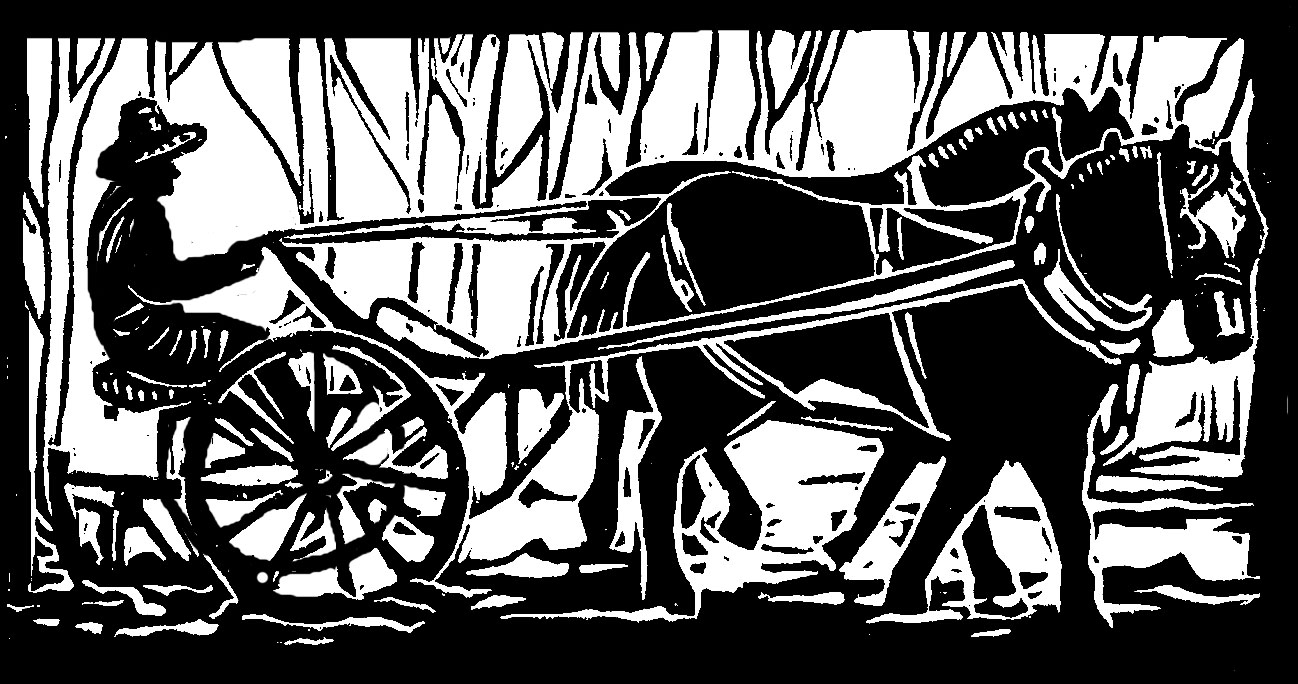It was our chiropractor who first told us farmers to get a grip. One of us would mince along the ice, going out to feed the horses or bring in wood for the stove, tensing her muscles and getting her neck out of whack. The other farmer would stride out boldly on the ice, and then wham! fall right down, getting everything out of whack. Despite our differing temperaments and techniques, our chiropractor assured us that all we needed was to get a grip.
One day, a few winters ago, after mincing and falling yet again, we went looking. We found a pair of Vermont-made ice grippers, which pleased our buying-locally selves, and we invested in one pair, to see if we liked them. Well, we did like them, and we wore them all the time, taking turns going out on the icy paths around the farmyard.
Then, when we took walks together through the slippery fields, we had a dilemma, with only one pair of grippers. But did we really need another pair? Why, winter was practically over, and the budget is always a consideration. Couldn't we make do?
Thus the thrifty famers went for walks holding hands, with one farmer sporting a left-foot gripper, and the other a right-foot gripper, which made us fifty percent less prone to mincing or falling. Over the ensuing spring, summer, and fall, the budget committee had time to think it all over, and Yes! was the conclusion. We would buy another set of grippers. We happily reported this to our chiropractor, who heartily approved.
Now that we have had our Vermont grippers here in New Hampshire for a few winters, we decided to take them on a holiday, to Acadia Park in Maine. Originally, the holiday in Maine was intended to coincide with our 20th anniversary. Unfortunately, that fell in August, which coincides with high season in the garden. Could we afford to take a week off when the tomato plants were lush with fruit, not to mention the other vegetables flourishing all over the garden? Alas, we could not, we groaned, wondering why we ever decided to be vegetable farmers in the first place.
But then, just recently, our daughter wanted to visit College of the Atlantic, which is right next to Yes! Acadia Park in Maine! Allllll right! we said. What could be more fun than Maine mountains and ocean in January?
We stuffed our horses' mangers full of three days worth of hay, and filled our kitty's bowl. We rented the cheapest room we could find in our first AirBnB, and we got free meals through the college's dining hall, both of which fit nicely in a vegetable farmer's budget. We were off, and we were entirely blessed by the Maine spirits: we had two days of brisk but manageable winter weather, with virtually no snow and no wind, and even some sunshine. Of course, there was plenty of ice on the mountain path, but we had our grippers.
We got a grip, hiking for two lovely days, around Jordan Pond and up South Bubble Mountain, as well as climbing Cadillac Mountain, highest point along the North Atlantic seaboard. We climbed in the fog and frost and ice and deep stillness, and our spirits were refreshed. Of course, it was a bit of a letdown to come off the trail to a parking lot on the top of the mountain, as there is a seasonal paved road to the summit. Happily, there were no cars, and we didn't see a soul on either hike, which is another advantage of hiking mountains in Maine in January.
There, on the top of Cadillac, as the fog lifted briefly for a view to the south of islands and ocean, my fellow farmer said, “So, are you happy that you married me?”
“What?” I was confused, blissed out by the physically demanding and spiritually uplifting hike.
“Isn't this supposed to be for our anniversary?” he asked.
“Oh, yeah,” I said, laughing, and gave him a kiss. “Actually, I thought being married to you would be more like this.”
“What do you mean?”
“Oh, you know, more hiking, and less farming . . .”
Now we were both laughing. “Aww,” my fellow said, “what are we going to do about that?”
Well, come to think of it, this is the year 2020, and we have been married twenty years, and we could take 20 hikes in 2020. That would surely give us a grip, a darned good grip, all year long, on farming and relationships, on work and love, on all those demanding, refreshing questions . . .
Originally published in the Monadnock Shopper News, Feb 12 - Feb 18, 2020
